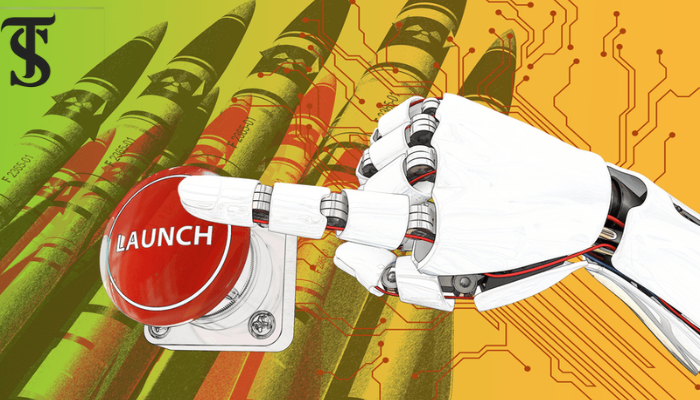Convenience or Complacency: Assessing ChatGPT’s Impact on Human Intellect

There is a certain irony in our digital era, we swim in a sea of information yet we quietly hunger to manipulate that information in our own fashion. This paradox is most evident in our silent, creeping dependence on generative AIs like ChatGPT; they promise to be intellectual crutches, but for many they become nothing more than crutches, weakening the mental muscles we once prized and preventing us from understanding our own thought processes. At first glance it seems absurd to label ChatGPT a mind-numbing tool; it can write code in seconds, draft articles in minutes, summarize research papers, compose poems, and clarify complex ideas. For those buried beneath a mountain of reading, racing against deadlines, or simply seeking an easy explanation, it can feel like a gift. Yet this unremitting offloading of mental effort is changing how we think in ways we often fail to notice; we are losing the classic struggle of wrestling with a problem, articulating our own ideas, and appreciating the satisfaction of arriving at a solution ourselves. The more we rely on ChatGPT, the more we find ourselves asking it questions instead of thinking.
Empirical studies have raised warning signs; a 2023 paper in Computers in Human Behavior found that heavy users of generative AI for writing reported declining confidence in their own writing and problem-solving skills, with many admitting they no longer knew how to proceed without AI assistance. Likewise, a 2024 Stanford study showed that while AI assistants like GitHub Copilot and ChatGPT boost short-term productivity, they erode code understanding and increase critical bugs, especially when code must be debugged or modified. Beyond technical know-how there is a subtle cost to critical thinking and long-term memory formation; reasoning flourishes through retrieval, elaboration, and the active struggle to explain concepts, and each time we outsource these processes to ChatGPT we short-change the mental exercises that embed knowledge deeply in our minds. A 2024 article in Nature Human Behaviour even found that relying on AI chat assistants leads to poorer recall just hours later, as the brain flags AI-assisted information as unnecessary to store; just as GPS can erode spatial navigation skills, generative AI may be eroding our intellectual maps.
One might argue that tools are neutral and the fault lies with users; yet ChatGPT’s design—its quick, confident, conversational interface—lowers the barrier to reliance to nearly zero. It never forces us to pause, compare sources, or reflect before accepting its output; although it occasionally suggests verifying facts or consulting credible sources, its assured tone implies further effort is unnecessary, creating a psychological impulse to accept its responses as definitive. In today’s attention economy cognitive ease often triumphs over critical scrutiny.
Dependency deepens because the more we lean on ChatGPT, the less we hone the skill of asking precise questions; framing a good query—knowing what to ask, how to phrase it, and how to refine it when a response is ambiguous—is itself a vital skill. ChatGPT makes this process effortless, but in doing so it subtly shapes our thought patterns around the system’s likely outputs, and we lose the discomfort essential to deep learning.
Moreover, overreliance on ChatGPT can stifle creativity; by synthesizing established knowledge it rarely ventures into the intellectual fringes where imagination and genuine insight flourish. Students report that AI-generated essays often offer polished but generic arguments built on conventional viewpoints, and over time writing styles merge with AI templates, dulling unique voices. A late-2024 MIT study found that while ChatGPT-assisted essays were clearer and more organized, they scored lower on creativity, nuance, and personal expression.
There is also a risk of knowledge laundering; when learners or professionals habitually copy-paste AI-generated summaries or explanations and internalize them as their own, a feedback loop arises in which this external material becomes misconstrued as personal knowledge. In high-stakes fields—law, medicine, policy—such superficial understanding can have dire consequences, since sound judgment depends on grappling with information at its core.
These effects accumulate invisibly over time; occasional use of ChatGPT for a quick code snippet or brief summary is not harmful, but constant reliance without active engagement breeds intellectual passivity. We become accustomed to surface-level answers rather than the deep insights that emerge from asking, “How would I explain this to someone else without AI?” or “Can I reconstruct this idea in my own words?” Without these habits our mental muscles atrophy.
This is not an anti-technology Luddite manifesto; generative AI can powerfully enhance learning, spark curiosity, and boost productivity, provided we use it with intention. We must consciously plan our interactions, use ChatGPT to refine and stretch our thinking, challenge ourselves, and engage in genuine dialogue rather than simply seeking answers.
Educational institutions and workplaces should rethink how they integrate ChatGPT; students might first write reflections on what they know, then consult AI to critique or expand their ideas rather than replace them. Employers could adopt AI for brainstorming but prohibit using its output as a final deliverable. Individually, we can practice rewriting AI explanations in our own words, testing ourselves before consulting AI, and treating AI responses as the start of a conversation, not the end.
By pairing AI’s convenience with deliberate, active learning strategies, we can ensure that generative tools augment, not atrophy, our intellectual capacities.
The author is an undergraduate student of International Relations at the National University of Modern Languages, Islamabad.





